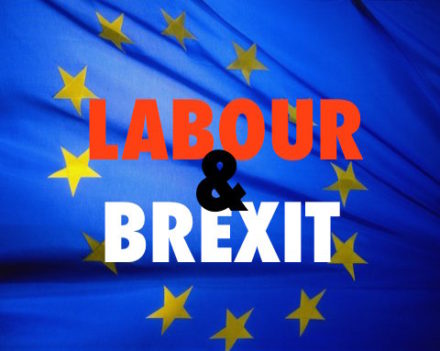
The Leave campaign’s most alluring slogan was “take back control”, an idea so emotionally compelling it won them millions of votes. But the Tories have no intention of giving people more control over anything. They’ve slashed funding for local services, talked of localism while centralising control of schools and housing and left whole regions that need serious investment to fall further behind instead.
After Brexit, they will use the excuse of global competition outside the EU to slash rights and benefits. British workers will find they have less control than ever, with poorer areas that backed Brexit out of desperation left most at risk.
I asked David Davis how he would make sure communities like these have a voice in Brexit negotiations. His evasive reply was that his new Department will “listen and talk to as many organisations as possible”. In other words, communities and local government won’t have a seat at the negotiating table at all.
The Tories stand for an elitist form of politics that means control must always be exercised by Westminster and Whitehall, with communities exposed to the forces of globalisation without the power to ensure it works to their advantage. Trust in politics-as-usual is already at rock-bottom, once communities that already feel powerless slip back even further we start to see conditions that could nurture a more dangerous and extremist politics.
Many traditional Labour voters supported Brexit and the reasons pre-date the arrival of our current leader. Many voters feel that successive governments have connived in globalisation’s steady erosion of their community, culture and way of life. They feel buffeted by global forces they can neither withstand nor control, and voting Leave was a way to make the political elite sit up and listen.
Globalisation has left many communities with a deep sense of loss. They resent national politics as a whole, but Labour in particular because they trusted us to support them and we didn’t. We see this in declining turnouts at elections, or growing Tory and UKIP support in traditional working class Labour areas.
They believe Labour has abandoned them and grown hostile to the values they hold dear. The expectation of a job for life has been replaced by the insecurity of casual, low-skilled and low-paid work. Aspirational young people have little option but to move away. Today’s Labour Party appears uncomfortable with English identity and patriotism, defends a welfare system that humiliates too many people instead of helping them back on their feet, and sounds so hostile to business they think we are against work. We are engaged in a destructive battle over versions of our own past instead of helping the communities we represent to face the future with confidence.
People who feel politics has let them down so badly are going to want to take back control. If they can no longer trust politicians they can at least trust themselves. Addressing the deep sense of loss that led to Brexit must mean giving people the control they need to make the future feel hopeful again.
Change is a constant in today’s world and can’t be turned back, but change that affects you without you being able to turn it to your advantage can be devastating. People want more control over the forces that dominate their lives. They do not want to be left at the mercy of remote centralised state power or uncontrolled markets that treat people as disposable units of production and consumption instead of as human beings with ties to family and community.
Examples of how we can help people take back control are all around us, we just need to bring those ideas together and show people how they add up to a new politics. Community land trusts give people control over public land to build new homes or manage regeneration in their own interests. Co-operative housing offers residents long-term stability at lower rents as well as a share in ownership. Giving workers a seat on company boards, a say over top managers’ pay, a right to share ownership and a bigger share of company profits, reduces the sense of alienation many people feel at work.
What about lifelong learning accounts that workers can use to keep their skills up to date, retrain for a new job or develop an interest that enriches their life? Or the right to personalise the public services you use around your and your family’s real needs rather than just fitting in with how they’ve always operated? None of this is about forcing people to run things themselves, it’s about ensuring they have a voice together with the power to make it heard.
Our country is scarred by an inequality of power that underpins the inequalities of wealth and opportunity we more often point to. The rich have always had the power to shape the life they want, now Labour must extend that power to everyone else. Our regions, cities, neighbourhoods and citizens all need a bigger say over the decisions that shape their destinies. A bold and radical plan for taking back control would offer the hope of a better future to those who feel left behind. And it might just be a vision that could save Labour.
Steve Reed is MP for Croydon North. He was leader of Lambeth Council between 2006 and 2012 and is a former shadow minister for local government



More from LabourList
Andy Burnham manifesto: Greater Manchester mayor reveals three key election pledges in bid for third term
‘Labour should grasp the chance to secure EU visa deal for young workers’
‘How Labour could win a Milton Keynes majority for the first time in decades’